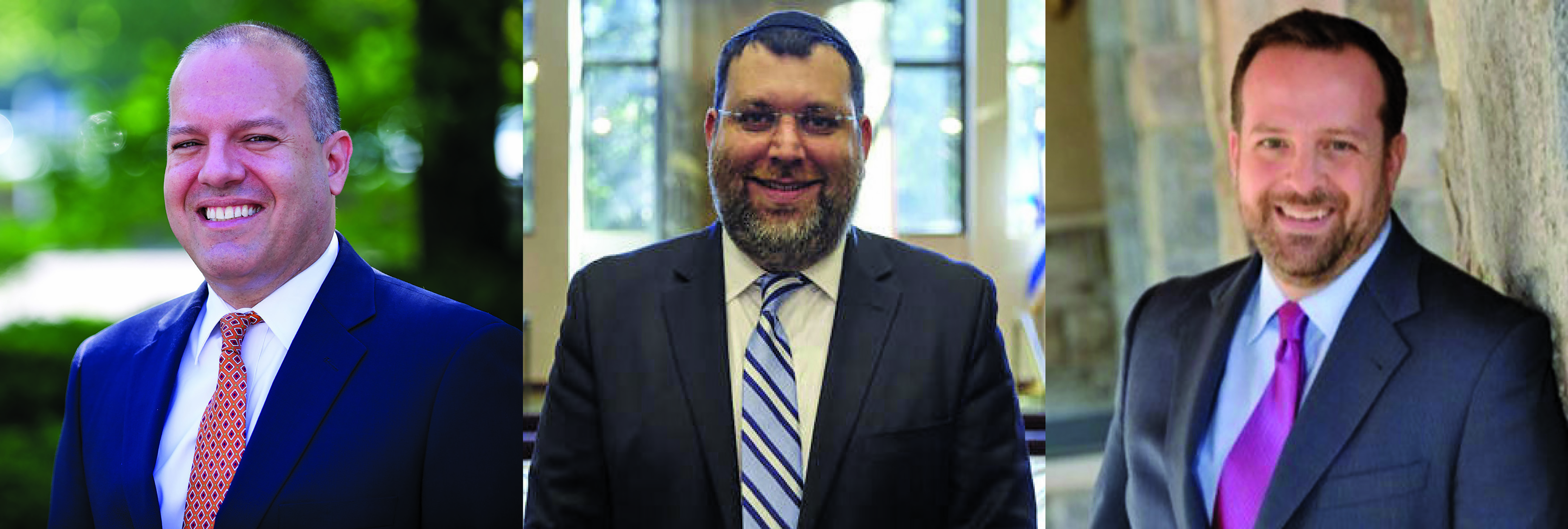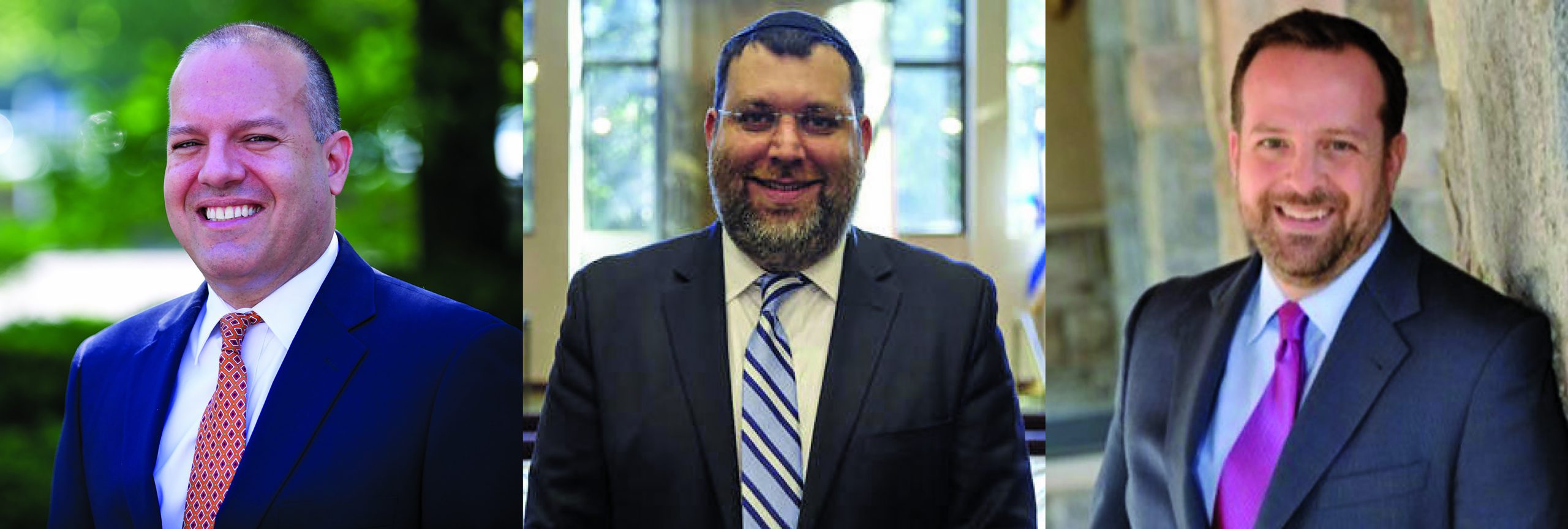 Yesterday, the Jewish Federation shared with The Jewish Link what they called a “statement of principles regarding civil discourse in northern Bergen County.” In preparation since before the High Holiday season, the statement directly addresses the Bergen-Rockland eruv controversy, states unequivocally that the eruv is legal, and asks the community to return to a more polite tone of civil discourse. It was authored by Federation leadership in concert with the two heads of the rabbinical organizations in northern New Jersey, the Rabbinical Council of Bergen County (RCBC) and the North Jersey Board of Rabbis (NJBR).
Yesterday, the Jewish Federation shared with The Jewish Link what they called a “statement of principles regarding civil discourse in northern Bergen County.” In preparation since before the High Holiday season, the statement directly addresses the Bergen-Rockland eruv controversy, states unequivocally that the eruv is legal, and asks the community to return to a more polite tone of civil discourse. It was authored by Federation leadership in concert with the two heads of the rabbinical organizations in northern New Jersey, the Rabbinical Council of Bergen County (RCBC) and the North Jersey Board of Rabbis (NJBR).
Federation CEO Jason Shames told The Jewish Link that having Rabbi Chaim Poupko, RCBC’s president, and Rabbi David-Seth Kirshner, NJBR’s president, co-author a document on this topic was important to him. “It is a recognition on their part that the unity of the Jewish people here in New Jersey was primary. Federation does not get involved in [deciding] halacha, but sometimes rabbinical boards can get together to create a stronger klal Yisrael here in New Jersey,” he said. Bruce Brafman, chair of JFNNJ’s JCRC (Jewish Community Relations Council), Zvi Marans, past JFNNJ president and Stephanie Goldman, current JFNNJ president, were also collaborators on the statement.
Shames noted that the controversy surrounding the eruv was never about the eruv itself. “The eruv was the manifestation of the issue; the real issue is clearly that the towns do not want the chassidic community moving in. They don’t want happening in their towns what they see across the border in Rockland,” he said.
His perspective is echoed by last month’s $3.4 million-dollar lawsuit brought by the New Jersey Attorney General’s office, along with the Department of Environmental Initiatives and the Department of Civil Rights, against Mahwah, one of three Bergen County towns currently embroiled in the eruv controversy. Shames noted that while he was aware previously that the lawsuit was coming, he felt the topic should never have been one to be disputed inside the Jewish context because it was not a debate on the issue, but rather the lack of civil discourse created “a spark plug”; he also indicated this statement of principles was in process long before the lawsuit’s filing, and he said he welcomed the lawsuit as it will now be resolved faster and better through outside intervention of state and county authorities.
“The eruv is going to go up. The parks and the eruv became the battleground, but at the end of the day, the Jews who live in those towns are not Orthodox, they like living where they do, they like their lifestyle and they sided with their neighbors,” he said. “The non-religious community is concerned about nothing other than the socio-recreational component of the town. It’s not the eruv that is of concern. It is the xenophobia they feel toward the black-hat community,” he said, referring to the chassidic sects of the Jewish community who live just over the border, two miles up the road in many cases.
“They don’t know what an eruv is so they can’t really fear it. What they fear is what they see happening across the border,” Shames added. “They see it as a land grab by the chassidic community in Rockland.”
“We live in a democracy and no one can make a judgment on where people can live. There just has to be a better way of handling the xenophobia and the rhetoric. We have to be bigger than this, we have to be above this. We have to be united on this and be clear about it,” he said.
“The idea [for the statement] was that what was going on in Mahwah was one of the most destructive forces of Jewish pluralism that we have ever seen in northern New Jersey, and the only way we could do this was for the Federation and at least the heads of the two major rabbinical boards to get together on this.” Shames added that the statement of principles is by no means absolute, and his work is by no means done, and that significant outreach will be required by the Federation in Mahwah and the other towns later on. But right now, he hopes that a return to civil discourse is first on the agenda.
“The Jewish community has so many issues on which we are fractured; it’s nice to be able to stand united, shoulder-to-shoulder on something,” Rabbi David-Seth Kirshner told The Jewish Link. He added that the group devised their work together as a statement of principles rather than some other format because “it is these principles on which we all agree,” he explained.
“The fact that the Federation, the RCBC and the NJBR were able to work together on this is a point of pride for us because there are, frankly, times when we cannot work together, and that’s why it’s so important to take advantage of the times that we can work together,” Rabbi Chaim Poupko told The Jewish Link.
“The group of us that got together felt very strongly that this event is a teachable moment, and it has a certain complexity to it; it’s not black and white. On the one hand, we vigorously oppose some of the things we’ve been hearing and reading. Personally, I’m shocked at the anti-Semitism which has been displayed by some and xenophobia by others. At the same time we have also been hearing from people who understand that they see the character of a neighborhood changing, and so we wanted to make clear that the eruv is something that should be welcomed. No one for any reason should be denied the opportunity to move into any other community, but on the other hand those moving in should be sensitive to those they are moving in next to,” Rabbi Poupko said.
“The Jewish community and the rabbinic community won’t sit idly by when there is discrimination towards any Jew; and we will insist that all people of all faiths subscribe to the law of the land. Meaning, those who put up the eruv need to so through the proper channels of the town which has been previously legislated,” said Rabbi Kirshner, noting that the statement is directed not just at the residents of Mahwah and the greater Jewish community, but also to those putting up the Bergen-Rockland eruv.
“I give all the credit in the world to Rabbis Kirshner and Poupko… it’s not easy to stand up in the canoe on this,” Shames said.
The statement of principles is available at: https://tinyurl.com/y8g2vz5n








